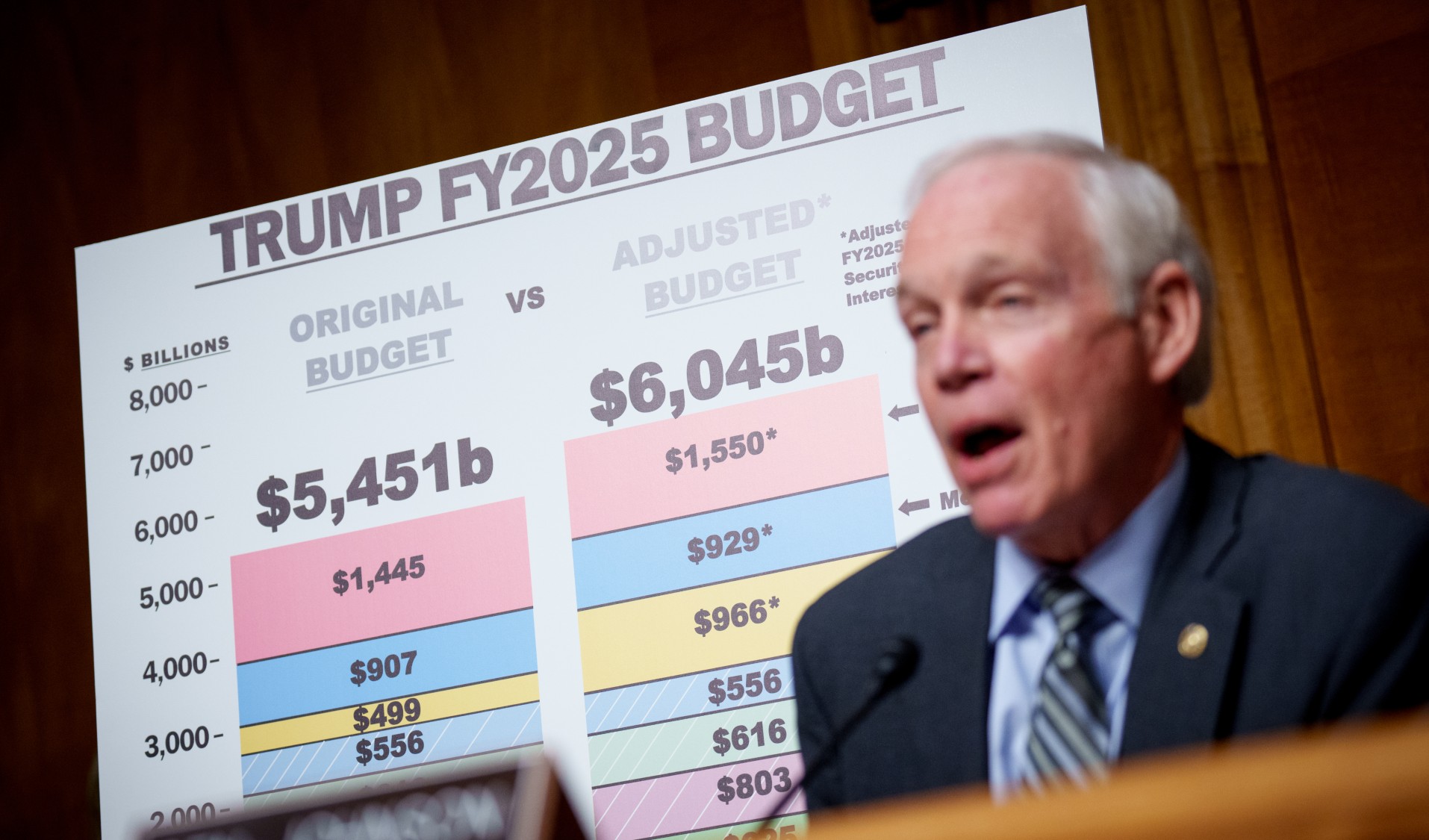What is 'impoundment' and how does it work?
The Trump administration grabbed at the 'power of the purse' in Congress, using a little-known executive action that could have massive implications for the future


A free daily email with the biggest news stories of the day – and the best features from TheWeek.com
You are now subscribed
Your newsletter sign-up was successful
Congress is locked in a contentious funding battle with an overzealous president who has spent his first weeks in office working to make good on a campaign promise to "challenge the Impoundment Control Act in court, and if necessary, get Congress to overturn it," as he stated in a 2023 campaign video. Given this ongoing fight and its potential implications, impoundment is poised to remain in the spotlight in the coming months.
What are 'deferrals' and 'recessions'?
The year was 1974; Congress had a Richard Nixon problem. The White House was refusing to release funds the legislative branch had already allocated to an Environmental Protection Agency program that Nixon spurned. The president's impounding of congressionally approved money set up a separation of powers showdown that made its way to the United States Supreme Court, as lawmakers grappled with the implications of an executive branch undercutting their "power of the purse."
In response to Nixon's pernicious withholding, Congress in 1975 passed the Congressional Budget and Impoundment Control Act, a sweeping law that establishes the strict rules for if and how a president can prevent congressional funds from being dispersed.
The Week
Escape your echo chamber. Get the facts behind the news, plus analysis from multiple perspectives.

Sign up for The Week's Free Newsletters
From our morning news briefing to a weekly Good News Newsletter, get the best of The Week delivered directly to your inbox.
From our morning news briefing to a weekly Good News Newsletter, get the best of The Week delivered directly to your inbox.
As its name implies, impoundment is, fundamentally, when a president chooses to "withhold or delay the spending of funds that Congress has appropriated for the federal government to disburse," The New York Times said. While holding back some funds is "routine" in cases where an objective can be achieved with less money, the practice "becomes contentious" when a president withholds money from a program "because he objects" to the program.
But contentious need not mean impossible. The Impoundment Control Act lays out a very specific set of criteria a president must follow in order to "reduce, delay or eliminate funding in an account," the House Budget Committee Democratic Caucus said. Broadly, this happens in two ways: "deferrals" create a "temporary delay in spending certain funds with the intent to spend them before their expiration," said the Bipartisan Policy Center.
"Recessions," on the other hand, are a "formal request" from the White House to Congress to "cancel certain budget authority, meant to address differences in policy positions between the executive and legislative branches." In both cases, the president must not only notify Congress of the exact amount, reasons for and potential impact of the decision to withhold funds, but if certain conditions are not met within a specified timeframe, the impounded funds once again are set for dispersion as originally intended.
Why does this matter for the future?
While the Impoundment Control Act is a powerful governmental rule, it would be "contrary to legal precedent — and to the Constitution" to say that it is what prevents presidents from impounding congressional funds, said the Center on Budget and Policy Priorities. Rather, the constitutionally prescribed "power of the purse" afforded to Congress "precludes the President from unilaterally deciding not to spend money that Congress has provided."
A free daily email with the biggest news stories of the day – and the best features from TheWeek.com
The Impoundment Control Act was intended to "create a new restriction to impoundment" and instead provides a "specified, fast-track legislative process" for intra-governmental funding changes. The Impoundment Control Act's role in clarifying "existing restrictions" has been "backed up by the courts," Forbes said.
That said, the Supreme Court has not "evaluated the constitutionality of the Impoundment Control Act's deferral and recession provisions" said Mark Thomas at the Yale Journal on Regulation, although there are "strong indications that the Court would uphold them." The fight over impoundment ultimately raises a "fundamental question about the structure of our government," said Georgetown University Law professor Steve Vladeck at his One First newsletter. If a president has free reign to impound funds without limit or reason, then "there's not much point to having a legislature."
Rafi Schwartz has worked as a politics writer at The Week since 2022, where he covers elections, Congress and the White House. He was previously a contributing writer with Mic focusing largely on politics, a senior writer with Splinter News, a staff writer for Fusion's news lab, and the managing editor of Heeb Magazine, a Jewish life and culture publication. Rafi's work has appeared in Rolling Stone, GOOD and The Forward, among others.
